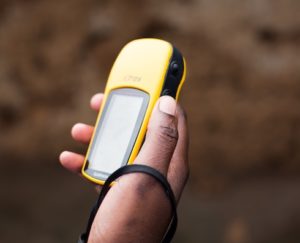SHOFCO is dedicated to the robust monitoring and evaluation of our programs and the inclusion of the community in this process.
The community identifies the focus of SHOFCO’s services through annual random surveys assisted by GPS technology. Since 2010, SHOFCO has annually recorded responses from over 1,000 households in Kibera regarding program utilization and a wide range of indicators including attitudes on gender and family roles, healthcare access, economic indicators, and educational attainment. The research serves two primary purposes: to establish a representative community “baseline” or random control group against which to measure our program outcomes and to functions, as a community needs assessment, helping to inform program development. We conduct similar annual surveys of SHOFCO members.
Additionally, SHOFCO provides every beneficiary with a unique ID card, allowing us to document every program use through barcode scanning. Each program has an annual work plan developed by our local program managers that provides a roadmap for achieving the established program outcomes and annual beneficiary goals.

Through our metrics and evaluation, we have seen a decrease in water-borne illnesses and typhoid over time in the areas with clean water distribution kiosks and health clinics. We have also seen an increase in the employment status of our members, likely due to their access to SHOFCO’s economic empowerment service and wide network.
In addition to the annual survey, data collected through our individual services greatly inform our program impact and efforts. For example, we have seen a drastic increase in the number of reported cases of sexual and gender-based violence over the years. Our gender development department and community health workers’ efforts have decreased the stigma in the community against sexual and gender-based violence reporting as well as increased the number and variety of access points where victims can report cases and receive services. These are only a few examples of some of the systemic shifts that our services have catalyzed, allowing our community members to lift themselves out of poverty to lives of promise.